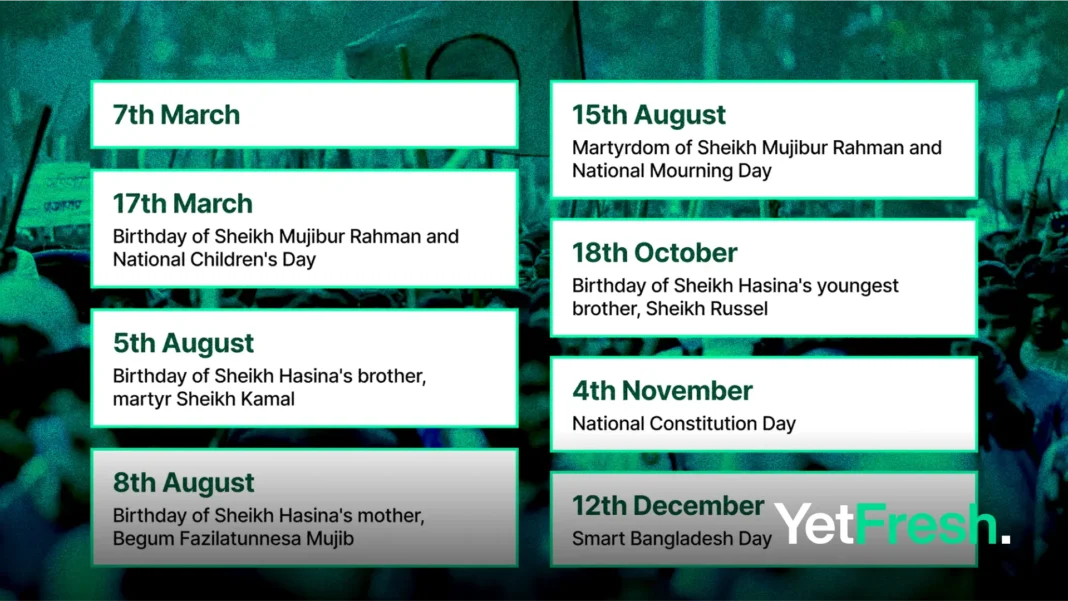No time to read? Just listen to the news!
TL;DR:
- Bangladesh’s interim government plans to cancel 8 national days, including March 7 (Historic Speech Day) and August 15 (National Mourning Day)
- The decision was announced on the chief adviser’s verified Facebook page and confirmed by an official from the Chief Adviser’s Office
- The advisory council made the decision in a recent meeting, with the cabinet expected to issue official circulars to formalize the cancellations
- The move has sparked discussions about the implications for national remembrance and historical recognition in Bangladesh
The interim government of Bangladesh has announced plans to cancel eight significant national days, including several commemorating key figures and events in the country’s history. This decision was revealed in a post on the verified Facebook page of the chief adviser to the interim government on Wednesday.
Among the days to be canceled are March 7, which commemorates Bangabandhu Sheikh Mujibur Rahman’s historic speech, and August 15, observed as National Mourning Day marking the assassination of Bangabandhu. Other notable dates affected include March 17, celebrated as both Bangabandhu’s birthday and National Children’s Day, and November 4, recognized as National Constitution Day.
The full list of days to be canceled are:
- March 7: Historic Speech Day
- March 17: Bangabandhu’s Birthday and National Children’s Day
- August 5: Birth anniversary of Sheikh Kamal
- August 8: Birth anniversary of Begum Fazilatunnessa Mujib
- August 15: National Mourning Day
- October 18: Sheikh Russel Day
- November 4: National Constitution Day
- December 12: Smart Bangladesh Day
An official from the Chief Adviser’s Office confirmed this information to local media. The post stated that the advisory council of the interim government made this decision at a recent meeting, and the cabinet is expected to issue official circulars soon to formalize the cancellations.
This move by the interim government has sparked discussions about the potential implications for national remembrance and historical recognition in Bangladesh. The cancellation of these days, many of which are tied to the country’s founding father and his family, represents a significant shift in the official observance of national events.
As the situation develops, many are awaiting further clarification on the reasoning behind this decision and its potential impact on Bangladesh’s cultural and political landscape.
Source: Prothom Alo




